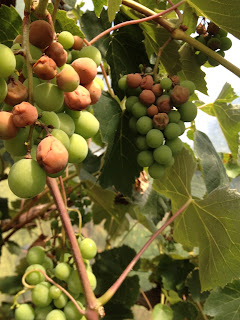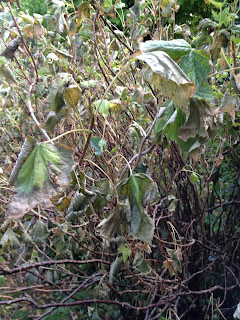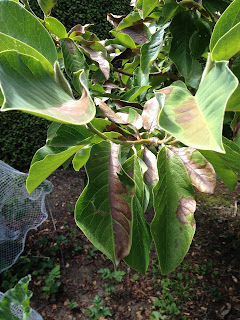Over ten years ago I organised a symposium on climate change to support a Climate Change Tour being conducted by the Green Co-leaders at the time, Jeanette Fitzsimons and Russel Norman. It was Norman who fronted at the Invercargill meeting and he was supported by his young staff member Gareth Hughes. We had over 40 attendees, including representatives from local councils and a scientist from NIWA, who also spoke. For many of those attending, the information they received was largely new to them.
At that time the reality of climate change and its human causes were still being debated in homes around the country. Nothing substantial was really being done at that time, but the fifth Labour Government had passed the Climate Change Response Act in 2002 to provide a legal framework for ratifying the Kyoto agreement and to meet obligations under the United Nations Framework Convention on Climate Change. In 2008, just before the end of their term, the Labour Government established the Emissions Trading Scheme (ETS).
When the National Government was elected later in 2008 there was an immediate change of direction. Many of National’s Ministers did not believe in the human causes of climate change and the government dismantled the ETS to the extent that many major polluters actually began receiving a subsidy to pollute and were openly committing “climate fraud”. The National Government also stepped up New Zealand’s investment in fossil fuels and encouraging the oil and coal industries to establish new mines and drill sites.
In 2013 the Government was still denying that any action was needed to address and prepare for climate change despite a severe drought and scientists predicting more. Under National, New Zealand experienced a decade of inaction and denial and we became the seventh worst in the developed world for emissions per capita.
My family has already experienced the reality of rising sea levels when our cottage in the Catlins had a metre of water flow through it in 2014. An off-shore storm and a tide higher than any in living memory did the damage and we expect more to come. While this damage was covered by insurance it is unlikely that a repeat event will be and the value of the property has diminished.
Invercargill usually expects around 1,150 mm of rain over a year, but in 2017 we received around 750mm, less than two thirds of a normal total. Last October Invercargill sweltered with a record breaking 25 degrees and since then we have been averaging in the 20s. Over the past week temperatures have pushed the mercury in our gauges to over 32 degrees, the hottest ever recorded for almost 100 years of data. The average high over the Summer months is normally only 18 degrees and anything over 20 degrees is celebrated. We are currently celebrating the occasional day under 20.
At 46 degrees latitude south, New Zealand’s southern most city has regularly been experiencing similar temperatures to cities near the equator. When we were sizzling at 32 degrees, we equaled Cairns, were 2 degrees warmer than Jakarta and Suva and 6 above Nairobi. These cities are used to such temperatures and their ecosystems have adapted to it, it has been a severe shock to ours.
Although many in the South have enjoyed the hottest and most prolonged Summer ever, I am witnessing an environmental collapse in my precious 1/4 acre.
Despite all vents and doors being open my little green house became a pressure cooker and the temperature gauge in it hit around 50 degrees causing my crop of grapes to brown and shrivel.
My lawn gave up its green some time ago and is browner than at any time in the twenty five years we have lived here. This may be common in Central Otago, but not Invercargill. We have only had 9mm of rain since the beginning of the year (we could expect 63mm on average).
I have been hand watering the vegetable garden and our flower beds most evenings and use mulch to retain moisture. However, I was shocked when over the past few days many of our trees and bushes produced evidence of stress and water deprivation. The leaves on our apples trees suddenly turned brown.
Our magnolia, fruit bushes, native shrubs and trees and even our large silver birch have all been badly effected. Some may never recover.
Obviously I am not a drought stricken farmer, whose economic survival is at stake, but this is the garden that I have invested 25 years into and have planted and nurtured many of these plants over that time. I have done my best to engender a greater awareness of climate change over many years and now that its effects have become super-personal I am very angry at those who I hold partly responsible.
I am angry with the previous government that ignored advice and promoted fossil fuel madness instead (encouraging mining and drilling and spending billions on new motorways.) I am angry with Fonterra for pursuing a high greed agenda that wasn’t sustainable and was largely responsible for the huge increase in methane emissions. I am also angry at all those in the US who refused to vote responsibly and not consider our children and grandchildren’s future when they voted for Donald Trump. The world’s 2nd biggest polluting nation is now being led by an ignorant man who puts his country’s coal industry before the future of the planet and my garden.















If this summer drought is the new norm for Southland, Dave, well have to change the rootstock we graft onto; perhaps the one they use in dry, hot Central Otago. In the meantime, I’m seeing the same sudden browning on apples around the region. Other trees are dying from the drought; our native tree fuchsia (kotukutuku) is the worst affected and the fodder willows too, some of which are simply collapsing. Rain will come (I guess) but I wonder how much harm has already been done. Those gardeners who prepared for this and other climate change possibilities will be feeling happy that they acted; adopting “messier” styles, encouraging the formation of humus in their soils, planting ‘dry country’ crops, adding to their rainwater storage capacity etc.
Robert, our vegetable garden here in Auckland is the worst we have ever had it – we had almost a month of drought over November/December when the growth was at its height and so the plants, although being watered were not getting what good rainfall will do for them. None of our tomato plants are producing anything like other years and we have given up on having a store of heirloom toms for summer eating and freezing over the winter months. Now we are being deluged with rain and its too late as the damage is done.
We don’t seem to have defined seasons anymore, and its hard up here because we have four seasons in a day anyway – flowers and bulbs come up early, I think fruiting plants just don’t know what the heck is going on. If there are climate change deniers still in existence then they need their heads read.
Gardeners whether they be on a large scale or home growers are the true indicator of what is going on with the climate and its not looking good for the future one little bit.
Good luck with the rootstock grafting.
Maybe people should not have scoffed.
https://www.youtube.com/watch?v=zqIt93dDG1M
[please don’t spam my posts with video links.
As you know, I also take a dim view of scaremongering because it puts people off from taking action. Especially scaremongering that invokes McPherson. His predictions around climate change have some serious credibility issues https://thestandard.org.nz/climate-change-change-vs-scaremongering/ – weka]
Well if you think he is right then why do you waste your time spouting on about veganism? Clearly there is not time for us to implement your solution.
I do not think he is correct. Yet.
I think we have very little time to act though.
Hence the urgency for people to change the way we live.
We should be on a war footing to mitigate against catastrophic climate change.
Hi Ed, Guy McPearson thesis appears to be:
1. Due to cascading interaction of multiple factors there will be an exponential rate of increase in surface temperature and that this will lead to a collapse of most life forms on the earth.
2. The cascade is irreversible by humans.
3. The timeframe for this occurring is 10 years (though I am not sure if that is a number chosen to get people to confront their mortality, or in actuality Guy has a bigger number.)
Are you contending that the cascade is not yet irreversible?
While I think our situation is very serious, I think McPherson is a problem for a number of reasons. I wrote this a couple of years ago, for occasions such as this when people invoke McPherson as someone of relevance in climate action,
I’ve been arguing for a while that Guy McPherson is as much a problem as Climate Change deniers. I won’t read his work now for a number of reasons. It is scaremongering at its worst and I don’t need to be more alarmed about CC than I already am. My time is better spent talking and writing about what we can do. McPherson is essentially proselytising the end of the world and how we should enjoy it, and the danger in that (a serious danger IMO) is that it encourages people who are finding change too difficult to just give up, or worse, have a party that makes the ship go down when we might still have a chance to save it. I also object to his position because he states his opinion as fact. He doesn’t know that the world is ending, he believes it is. It’s dishonest to confuse those two things.
Full post where climate scientists critique McPherson’s work https://thestandard.org.nz/climate-change-change-vs-scaremongering/
eucatastrophe
https://en.wikipedia.org/wiki/Eucatastrophe
There’s no sound reason not to hope and base your actions on that.
Very good!!
Do not look only to politicians to turn the tide, look to yourself. It begins with you. Advertising and circulating lists to help people know the many individual actions they can take to help turn the climate around would at this stage be very sensible.
Those whose income is sourced from polluting activities are not going to be easily stopped and they because of their wealth accumulated from these activities will be better able to survive the traumas to come. Traumas that will reduce human population over the world to a Sustainable level again. Its like lemmings to the sea isn,t it? Unless we all care a whole lot about it and each do something about it to stem the causes.
Lists please, every where, so there is no excuse like ignorance.
maybe it is..
http://www.bbc.com/earth/story/20141122-the-truth-about-lemmings
My sympathies Dave on your personal experience of abrupt climate change. The alternative routestock may buy you time but that’s all. Do it only if that’s what you love doing though, because McPherson is far from the only one saying it’s now too late.
And the “doomer equals inaction” meme is bullshit!
Are Kevin Hester or “Seemorerocks” doing nothing?
Am I doing nothing all day on my little slice of (for now) heaven? We are in a very small (for now) tribe who see clearly what is coming, but get up each day and do the work.
Guess I’m really lucky I love it so much.
are you actually 44 degrees south?
Climate change acceleration cause by human kind is poking US in the eyes come on people let’s change the way we live to help us leave a positive prosperous future for all not just the 1%. Many thanks To Juicey rentals for taking the bull by the horns and starting a to use elictric cars I could see the operator of that company are onto it Ka pai
In Titirangi we put down 8 cubic metres of mulch in late Nov and that’s worked fine.
9 boxed garden delivering the goods.
Big crop of butterflies.
During the dry we hose-sprinklered a couple of days but it’s expected.
I think in Auckland that will be fine, but much of NZ probably needs to rethink raised beds. Very hard to manage in a drought especially if there are watering restrictions.
I would guess that trees within food forests like the Guytons are going to be the best protected too.
That’s what we do.
Plus we are in the privileged position of Watercare’s beneficently regulated water state, serving a third of the country’s population and its household gardens.
Self-watering wicking beds may be worthwhile looking into. A lot of enthusiasts on Youtube – quite a few from that dry neighbour of ours – Australia.
Cheers Molly!
While at this point “climate change just got personal” is at the level of causing some disquiet or worry, there’s something maybe worth considering.
Andreas Malm, at the back end of a lecture he gave, was fielding questions, and one audience member asked why he thought the effects of climate change reflected social inequity.
To get the point across he used the example of California and the Horn of Africa.
Both have experienced drought. In one location, life goes on more or less as usual, while in the other people die – in huge numbers.
NZ is, of course, much closer to California in terms of being able to buffer itself from the effects of climate change than it is to the Horn of Africa.
But there is point beyond which all the systems we have that allow us to ameliorate the affects of climate change (basically infrastructure of various forms) just won’t suffice, and so, it’s just quietly suggested, the Horn of Africa might be providing a reasonable window to our (rich regions) future.
And the arse of it is, that because we can ameliorate for now, and because we are somewhat protected from the full effects of what we’re experiencing for now, we’re somewhat blase about (or completely missing) the urgent need for far reaching and transformative measures of action.
Yes, this. I’m pretty shocked by what Dave is reporting. That is serious level change away from what the local systems are used to. Not too hard to see NZ down the line.
I imagine much of the harm is lagging and will appear later, even when conditions improve. Young trees starved of water may never become robust enough for a long life. I think we can’t see the extent of the harm. I wonder about the delicate organisms that have no buffer and for whom there is no turning back; mountain butterflies, rockpool shrimps, etc.
yes, that’s my sense too. I hope we see some fast adoption of more restorative landcare techniques, but ultimately we have to make some pretty radical changes with regards to preventing the worst of CC.
I liked what janet 3 said.
( Janet 3
19 January 2018 at 11:01 am
Do not look only to politicians to turn the tide, look to yourself. It begins with you.)
The climate is changing all the time.
I just persevere.
After 15 years of useless crops in my garden in Dunedin we this year have a a complete turnaround.
The tomato crop is the best ever, the old variety apples and pears look incredible again.
A bit of botrytis coming in on the tomato crop now will have to spray I guess.
The snails and slugs were bad in the vegetables early, blitzim fixed them.
Same with white butterfly on the cabbages, a couple of sprays fixed them for now, although I see a few hovering around again.
I have sprayed the apples this year simply because we have a crop.
The plum trees produced plums before xmas first time ever picked the last ones today.
The flower garden has never been so bright with colour.
I put it down to the terrible summers we have had in the past 15 years as we kept getting polar blast through spring summer and autumn nothing was stable.
This year has been pleasantly warm night and day.
Thanks for publishing my blog post here. I have added a little more to my post and included recognition that the fossil fuel and auto industries have probably done more to cause climate change and delay action than anything else. If we have true justice these industries should be donating all their wealth to helping the millions of climate refugees that will be shortly looking for alternative homes.
“I am angry that the oil and automotive industries, that are well represented amongst the richest companies in the world (and have been globally subsidised for many years), have spent millions in questioning the science on climate change. The oil industry influence on governments and public opinion has been the major factor behind the slow global response. The science has been clear for decades.”
https://en.wikipedia.org/wiki/List_of_largest_companies_by_revenue
http://www.merchantsofdoubt.org/